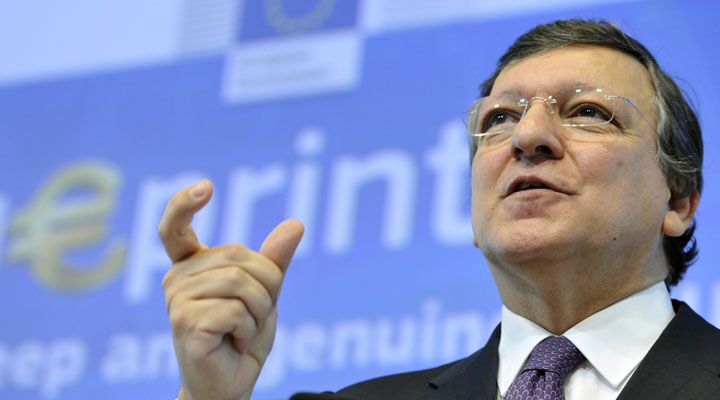
Federal Europe Coming ‘Sooner Than We Might Think’
At a conference on Tuesday on the “Blueprint for a Deep and Genuine Economic and Monetary Union,” European Commission President José Manuel Barroso rallied Europe to form a stronger fiscal, banking and political union, which he sees as becoming a reality soon.
In his keynote opening speech at the convention, Barroso encouraged a debate on the future of a united Europe and said, “We want to put all the elements on the table, in a clear and consistent way, even if some of them may sound like political science fiction today. They will be reality in a few years’ time, sooner than we might think.”
Barroso’s speech acknowledged the challenges that have come with uniting Europe—the “unfinished business of Maastricht,” as he called it.
While noting the stability and strength of the euro currency itself, Barroso acknowledged the euro crisis, which devastated Greece and Cyprus most of all. He discussed the lessons Europe has been learning, the changes it has already made, and the changes it must implement, via treaty. The European Commission, said Barroso, will “set out its views and explicit ideas for treaty change in order for them to be debated before the European elections [in May 2014].”
Barroso’s address at the conference revealed Europe’s great need for political union and how Europe’s economic crisis is encouraging that political unity. He said that “intensified political union” in Europe is a “key complement to fiscal and economic integration. … Europe’s economic interdependence—so strikingly highlighted by the financial crisis—calls for increased political integration.”
“[M]ainstream forces in European politics,” Barroso exhorted, “must seize the initiative, [and] should leave their comfort zone to welcome and embrace this debate, rather than relinquish the momentum to Euroskeptic or Europhobic forces.”
He concluded:
We will not get away with halfhearted solutions anymore, and half-integrated institutions will no longer do. We will not regain the trust of investors if we allow the momentum for reform to slip once again. We will not serve our citizens unless we do what we have to do—all of it—and do it well.
That is the challenge we are now facing. And though it is a serious challenge, in a troublesome context and with a heated democratic debate about the decisions we need to take, I am absolutely convinced that we will succeed in transforming the European Union so that it is fit to face the demands of this 21st century.
Since the 1993 Maastricht Treaty that established the EU in its current form, the Trumpet has consistently been writing about an intensified union of Europe. But even before that, the Trumpet’s predecessor, the Plain Truth, under Herbert W. Armstrong, wrote about European political unity when the European Coal and Steel Community was formed in 1951. In fact, Mr. Armstrong spoke and wrote about European union back in the 1930s and 1940s when the Continent was divided in war.
In 1983, Mr. Armstrong summarized: “For 50 years I have been crying out to the world the Bible prophecies of this coming ‘United States of Europe’—a new united superpower perhaps more powerful than either the Soviet Union or the United States!”
These biblical predictions seemed like political science fiction to many people, but today they are reality that we can read about in the news.
For more on the unity of Europe, how it was planned and what it means for the future, read Trumpet editor in chief Gerald Flurry’s article “Did the Holy Roman Empire Plan the Greek Crisis?” and request a free copy of a digest of Herbert Armstrong’s Bible-based predictions, He Was Right.
